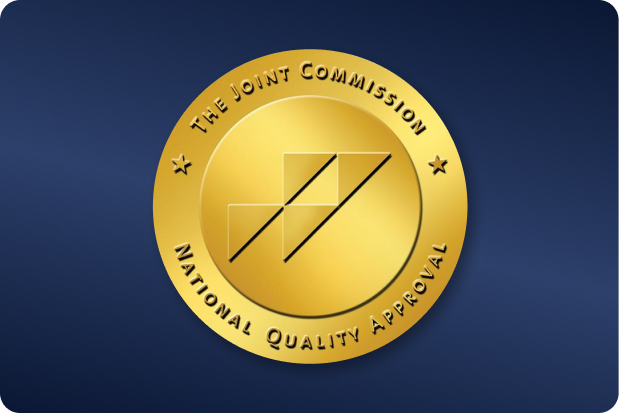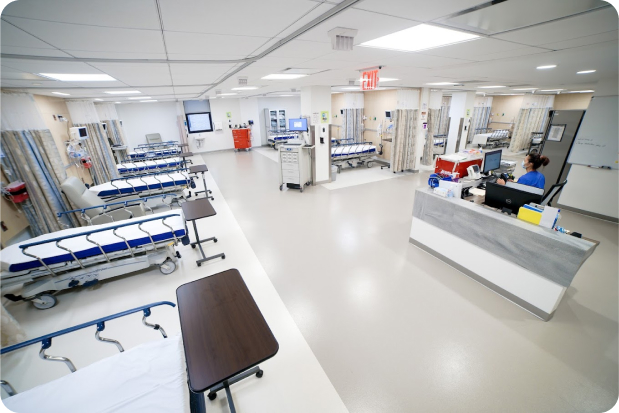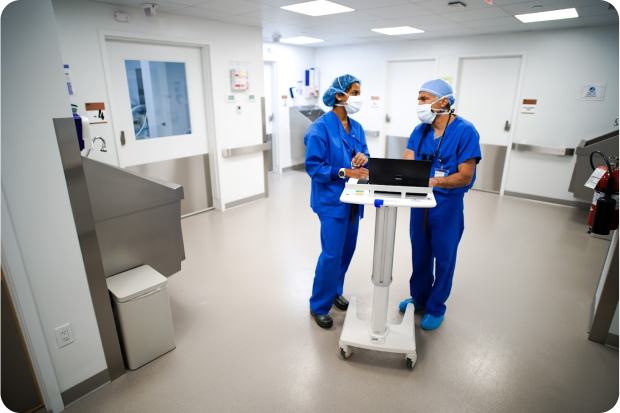 Same-day Appointments Book Online
Call to book 201.523.9590
Same-day Appointments Book Online
Call to book 201.523.9590
 Same-day Appointments Book Online
Call to book 201.523.9590
Same-day Appointments Book Online
Call to book 201.523.9590
Table of contents
At the Spine & Rehab Group in New York City and across three northern New Jersey counties, spine specialists have the training, experience, and medical equipment to get you back to full mobilization as quickly as possible. It takes an expert in shoulder pain to correctly diagnose and effectively treat conditions like frozen shoulder. Dr. Amr Hosny and his team have what it takes. Call for a consultation and get out of pain today.
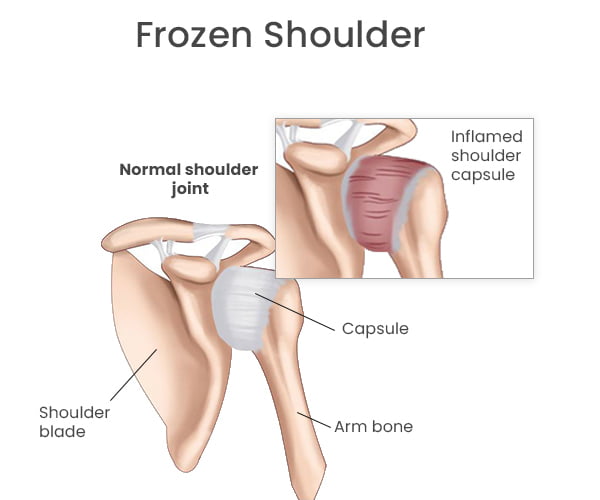
If you have pain and limited movement in your shoulder, you may have a frozen shoulder. Also known as adhesive capsulitis, this condition can affect one or both of your shoulders. It’s more common in women than men and usually affects people between the ages of 40 and 60.
If your quality of life has been limited by shoulder pain, visit a doctor to discover the cause so that you can receive the correct treatment. A variety of conditions can cause shoulder pain, including shoulder tendinitis and shoulder bursitis.
For an accurate diagnosis and the best-individualized treatment of shoulder pain in New York City or New Jersey, book an appointment with Dr. Amr Hosny and his talented team of spine doctors at the Spine & Rehab Group.
Adhesive capsulitis typically starts with shoulder pain and stiffness and progresses to a reduced range of motion. Some people experience increased pain during the night.
Typically, there are three stages of this condition:
Each of these stages may last several months. Getting back to normal or close to normal can take from six months to two years, which is why you should opt to receive a firm diagnosis as soon as possible. Once your frozen shoulder has been identified, you can get effective treatment from a knowledgeable and resourceful spine doctor like Dr. Hosny.
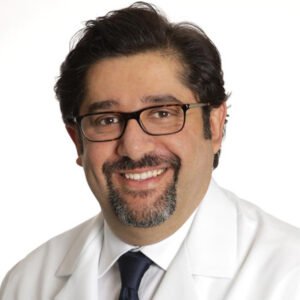 Amr Hosny, MD, MBA, FASA
Book Now
Amr Hosny, MD, MBA, FASA
Book Now
 David Chu, MD, FAAPMR
Book Now
David Chu, MD, FAAPMR
Book Now
 Vivek Mehta, MD, FAAPMR
Book Now
Vivek Mehta, MD, FAAPMR
Book Now
 Deepali Gupta, MD, DABA, DABPM
Book Now
Deepali Gupta, MD, DABA, DABPM
Book Now


A frozen shoulder develops when the capsule of connective tissue that surrounds the shoulder joint tightens and thickens. It’s unclear why this happens, but some risk factors have been identified that increase your risk of developing adhesive capsulitis.
These risk factors include:
A frozen shoulder can sometimes be diagnosed from a physical exam alone or the exam may be combined with imaging tests, such as an MRI or x-ray.
Two important tests help confirm the final diagnosis and severity of your condition:
During these tests, your spine doctor checks your level of pain and determines if your range of motion has become limited. If you have a frozen shoulder, your range of motion is limited both actively and passively.
The NJ spine and rehab group has offered highly personalized care in every way. The staff is amazing. This practice doesn’t ascribe to the typical assembly line approach. There are never more than two patients being treated at a time. The physical therapist and assistant know me by my name and engage me as a person not a 'frozen shoulder'.
Through out my physical therapy treatment my program has continually been reviewed and refreshed. This has encouraged me to work my program and recover quickly. The superior level of care and support that this practice offers is why I have recommended them to family and friends
My shoulder was painful and stiff, and I have lost my normal range of motion. There was just this tremendous pain and discomfort. I didn't like Dr. Hosny as much when I initially met him, and he suggested physical therapy. However, his professionalism and empathy won me over, and I decided to trust him. Ten weeks later, my shoulder has around 75% of its previous mobility. It still hasn't totally recovered. Still another five to six weeks.
Tristan R.Frozen shoulder may go away on its own, but it takes time and patience. The process may take a year or longer. Meanwhile, you’re stuck with limited shoulder flexibility, which degrades your quality of life. Adhesive capsulitis treatment aims to control the pain with interventional pain management techniques and restore motion as quickly as possible.
Options for adhesive capsulitis treatment include:
If conservative frozen shoulder treatment methods don’t bring relief, your doctor may consider surgical frozen shoulder treatment as a last resort. This may include shoulder manipulation under general anesthesia or surgery to remove scar tissue from inside your shoulder joint.
For frozen shoulder treatment, visit a medical practitioner who understands the pain caused by the joints in your body. Dr. Hosny and his team specialize in the diagnosis and treatment of shoulder problems, sports injuries, and interventional pain management. At the Spine & Rehab Group, you’ll find a team of highly skilled doctors who provide one-on-one care and state-of-the-art treatment for shoulder pain, back pain, neck pain, knee pain, and more.
Regardless of the cause of your discomfort, the team is dedicated to relieving your pain and facilitating your recovery. Regain the use of your shoulder and get back to your everyday life. For an appointment at a time and location that’s convenient for you, contact the office nearest you today.
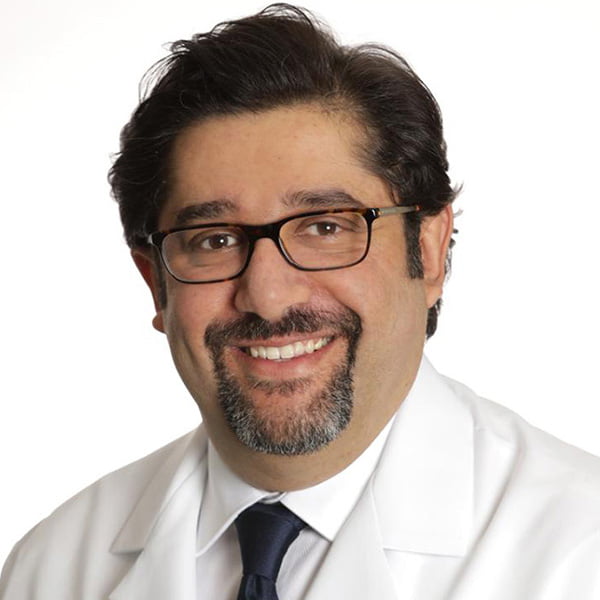
Dr. Hosny is a distinguished physician, educator, and healthcare leader with a commitment to advancing health equity and accessibility in the rapidly evolving landscape of modern healthcare. After completing his residency at St. Luke's Roosevelt Hospital Center, affiliated with Columbia University in New York City, he pursued an Interventional Spine Fellowship at Beth Israel Deaconess Medical Center, part of Harvard Medical School in Boston, MA.
Dr. Hosny has held prominent roles in academic medicine, including serving as an Associate Clinical Professor at New York Medical College and as the Interventional Spine Fellowship Program Director. These positions reflect his dedication to mentoring the next generation of healthcare professionals and advancing the field of interventional spine care.
More About Dr. HosnyThe Spine & Rehab Group
140 NJ-17,
Paramus, NJ 07652
(212) 242-8160
